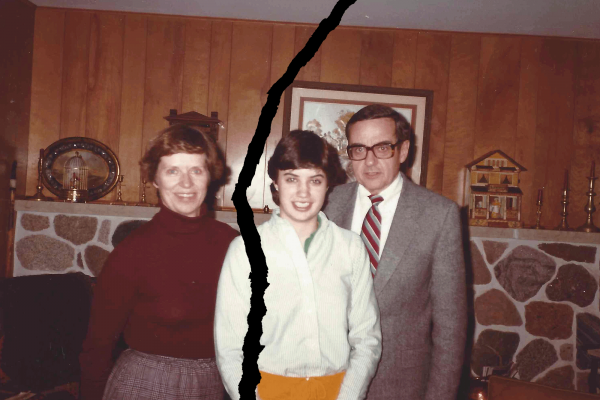On Feb. 23, 25-year-old Ahmaud Arbery had been jogging near his home on the outskirts of Brunswick, Ga., when he was followed, apprehended, and fatally shot by two white men. The assailants have since been jailed and charged with murder and aggravated assault, two days after a graphic video of the shooting became public, more than two months after the killing itself, and almost eight years to the day after 17-year-old Trayvon Martin was murdered by a vigilante.
Hundreds gathered outside the Glynn County Courthouse on Friday, while a Change.org petition calling for justice reached over 900,000 signatures. The hashtag #iRunWithMaud was trending across social media outlets, as supporters participated in a 2.23 mile run or walk on Friday to commemorate Arbery’s would-be 26th birthday.
Other reactions, however, have been more haunting, drawing comparisons of the murder to America’s dark history of terror and violence against the black community. Rev. James Woodall, state president of the Georgia NAACP, stated, "The modern-day lynching of Mr. Arbery is yet another reminder of the vile and wicked racism that persists in parts of our country." An examination of the histories of lynching show that the comparisons are not implausible.
Lynching became widely practiced throughout the United States during Reconstruction and throughout the Jim Crow era as a method of social control, punishment, and surveillance. It was an ongoing threat, rooted in white supremacist ideologies, often with fatal consequences. However, the legacy of lynching continues to haunt black people as they remain surveilled, apprehended, tortured, punished, and murdered in public, and often with impunity.
Black people have been murdered for playing loud music (Jordan Davis), selling CDs (Alton Sterling), attending church services (The Charleston 9), having a disabled vehicle on the side of the road (Terrance Crutcher), cashing checks (Yvonne Smallwood), and now jogging. As is the case with lynching in history and in contemporary times, justice is rarely served, despite eye-witnesses — and now live video evidence. When will the lives of black people ever matter to America? Black people are tired. We are tired. I am tired.
In the face of a global pandemic that continues to disproportionately plague the lives of thousands of black people across the nation, the murder of Ahmaud Arbery and the continued experiences of anti-black racism has caused vicarious trauma and a deep sense of collective grief among the black community. Some have refused to watch the video of the assault in efforts of mental and emotional self-preservation, while others have expressed exhaustion from the relentless carceral state of affairs in America that imperils our lives and humanity. What many are experiencing is racial battle fatigue (RBF), a term coined by Dr. William A. Smith in 2003, which refers to the race-related stress responses to ongoing distressing social, political, and cultural conditions.
Racial battle fatigue, causes black people to experience various forms of mental, physical, emotional, and physical stress that can lead to both psychological and physiological symptoms including headaches, elevated blood pressure, insomnia, mood swings, anxiety, and social withdrawal. These stressors can even lead to spiritual symptoms, including lack of faith, weariness, hopelessness, disillusionment, and anger with God. Black people are hurting and finding it harder to turn to normed coping strategies for the interpersonal and collective experiences of racialized trauma, institutional racism, and terrorism.
How can communities of faith begin to support, validate, and affirm black people in their current experiences of racial battle fatigue?
1. Realize that it is not the duty of the black community to inform or enlighten dominant groups about racism. It is not a system created by us, or one in which we inherently benefit from. It is vital, however, to reflect and learn about the nation’s legacy of terror on the black community, evidenced by 400 years of violent enslavement, decades of Jim Crow segregation, and the contemporary manifestations of mass incarceration and police brutality.
2. Acknowledge the lived experiences of systemic injustice and racial terror among black people, and validate the symptoms and complex expressions of racial battle fatigue. Historically and contemporarily, the experiences of black people have largely been ignored, dismissed, and diluted.
3. Recognize that racism is a sin and silence is complicity. Faith communities, in attempts at political neutrality, have neglected the ways that whiteness and racism, endemic to the fabric of American society, has permeated the faith. By remaining bipartisan, we stand on the wrong side of the faith as it denies the divine image of Christ in others. Spiritual and religious practices can actually nurture our racial-justice commitments and act as anti-racist, social justice, healing work.
4. Radical change and action is needed. If we are indeed Christians, we are called to love our neighbors as Christ loved the church (with an undying, agape, unconditional love), and embody the same ideas that Jesus did, willing to lay down our lives, privilege, and livelihood for the sake of the salvation, and humanity of another.
The Bible shows us that God takes serious offense when justice is perverted. Isaiah 59:14-15 states, “Our courts oppose the righteous, and justice is nowhere to be found. Truth stumbles in the streets, and honesty has been outlawed. Yes, truth is gone, and anyone who renounces evil is attacked. The Lord looked and was displeased to find there was no justice” (NLT). We are called to defend the oppressed, denounce racism, and demand for the immediate overturn of unjust systems. Now is the time to protect the faith and fate of your brothers and sisters in Christ.
Got something to say about what you're reading? We value your feedback!







